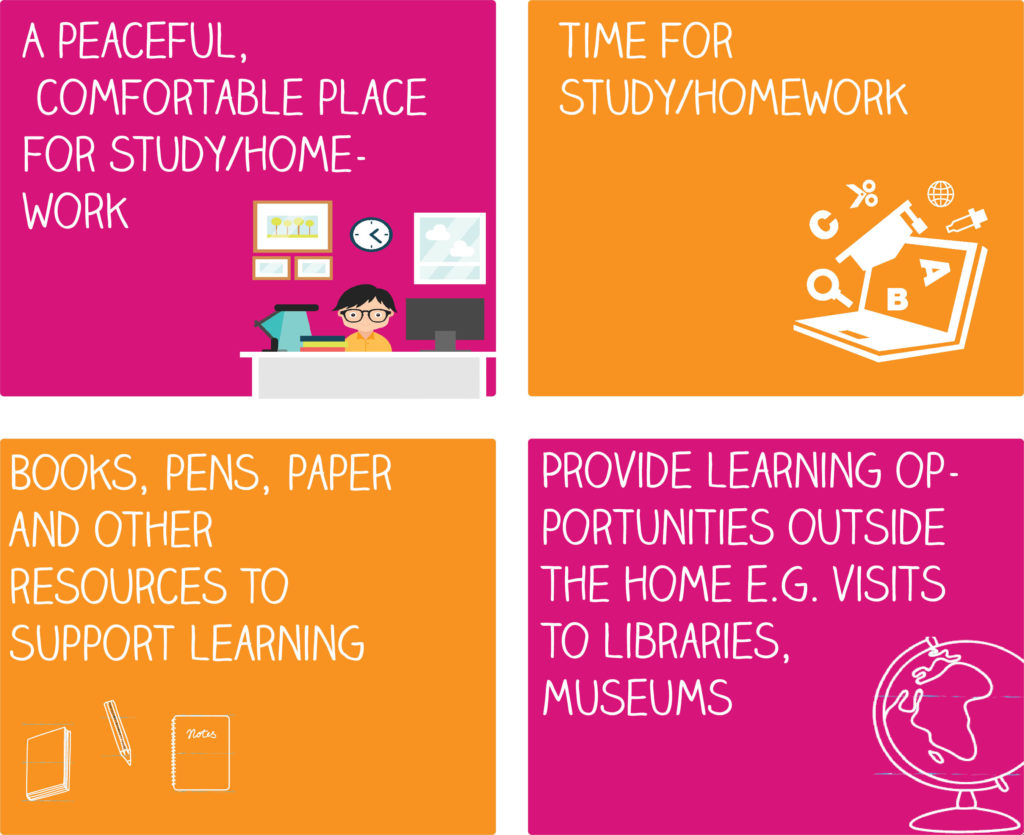
Foster carers can provide much needed stability and encouragement by working in partnership with schools and other children’s services to improve education attainment for children placed with them.
We are often asked by parents and carers how best to support the child looked after’s educational placement and how to maintain consistency in their learning, improving their chances at achieving their educational potential.
Parents and carers in partnership with the virtual school, social workers and the educational placement can provide the stability required to support the child’s education.
Parents and carers are required to attend all events and meetings within the child’s school calendar to demonstrate their support and commitment to the child’s learning such as PEP meetings, sports days and parent’s evenings.
Carers should provide an appropriate learning environment with:
Designated Education Foster Care Lead
Children’s Social Care has nominated a foster carer champion for education who is in post to provide advice to other foster carers and parents around how to support children looked after’s learning within the home.
The role of the education foster care lead includes:
- Engaging foster carers with the education of their children
- Helping foster carers understand their role in the educational outcomes of their children looked after
- Attending PEPs with foster carers to help them in being more assertive about what they feel the child needs
If you feel you need support from an education champion, please contact Ian Butcher: ian@ianbutcher.co.uk
Education timeline
How to support children & young people with their learning
- Keeping schools informed of changes and emerging problems
- Helping the young person to talk about any worries and speaking on their behalf when appropriate.
- Helping the young person to voice their hopes for their future and ensuring these are communicated to school
- Encouraging the young person to develop their talents and recognise their achievements no matter how small
- Attending parents’ evenings and encouraging birth family’s involvement where appropriate
- Supporting school policies (discipline, dress etc.)
- Taking an interest in the activities of the school
- Completing communication books such as homework diaries, reading records etc.
- Supporting homework by reading with a child, offering advice and making sure set tasks are completed
- Supporting school events
- Ensuring awareness of the school’s calendar
- Making sure you know the timetables and arrangements for exams and course work completion
Useful Links:
| Education Catch-up – New website for parents to help their children catch-up |  |
| Lewisham’s Young Mayor: Find out about the young mayor and other young people representing their peers in Lewisham and learn about their roles. |  |
| The Multi-agency Safeguarding Hub (MASH): The MASH provides a single point of access to advice, information and support services for professionals working with vulnerable and at-risk children and young people. |  |
| Rees: We understand the importance of a having a lifelong support network. Our aim is to help care experienced people thrive. |  |
| The Fostering Network: Education advice and guidance for foster carers, including the role of the foster carer in education, early years provision, admissions and PEPs. |  |
| Fostering Handbook: Useful handbook for foster carers, includes advice about schools and education. |  |
|
Your online mental wellbeing community: Free mental health and wellbeing support for young people |
 |

